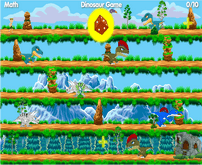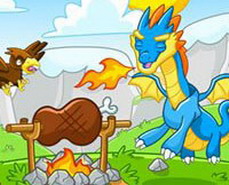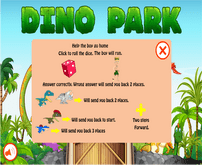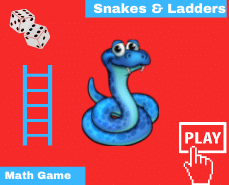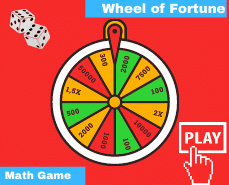Math Jeopardy 4th Grade | 4th Grade Math Jeopardy
Are you looking for an exciting and engaging way to help your fourth-grade students improve their math skills? Look no further than Math Jeopardy! This popular game format has been adapted to create an educational and enjoyable experience for young learners. In this article, we will explore the benefits of Math Jeopardy for fourth-grade students and how it can enhance their understanding of key math concepts. Let's dive in!
1. Introduction
In this digital age, traditional teaching methods are being transformed to make learning more interactive and enjoyable. Math Jeopardy is an innovative approach to teaching math that combines the thrill of a game show with essential mathematical concepts. By leveraging this format, students can have fun while reinforcing their knowledge and skills in various math topics.
2. What is Math Jeopardy?
Math Jeopardy is a game that follows the format of the popular television show, Jeopardy. It presents math problems in the form of answers, and students must provide the correct questions to earn points. The game is usually played in teams, creating a competitive and collaborative learning environment. Math Jeopardy covers a wide range of math topics, including arithmetic, geometry, fractions, decimals, and more.
3. Benefits of Math Jeopardy for 4th Grade Students
Math Jeopardy offers several benefits for fourth-grade students. Let's explore some of the advantages:
a. Enhanced Engagement
Math Jeopardy creates a high level of engagement among students. The competitive nature of the game motivates them to actively participate and strive for success. By transforming learning into a game, students become more enthusiastic about math and are more likely to retain the knowledge they acquire.
b. Reinforcement of Math Concepts
Playing Math Jeopardy allows students to reinforce their understanding of key math concepts. By applying their knowledge in a fun and interactive setting, students gain a deeper understanding of mathematical principles. The game also helps them identify areas where they need improvement, enabling targeted practice and growth.
c. Development of Problem-Solving Skills
Math Jeopardy promotes the development of critical thinking and problem-solving skills. By encountering different math challenges in a game format, students learn to analyze problems, devise strategies, and think quickly under pressure. These skills are invaluable in their academic journey and beyond.
d. Collaboration and Teamwork
Math Jeopardy encourages collaboration and teamwork. By participating in teams, students learn to work together, share ideas, and communicate effectively. They learn from one another's strengths and weaknesses, fostering a supportive and cooperative learning environment.
4. How to Play Math Jeopardy
Playing Math Jeopardy is simple and easy. Here's a step-by-step guide:
Step 1: Set up the Game
Create categories and assign point values to each. The categories can be based on different math topics or specific areas of focus.
Step 2: Form Teams
Divide the students into teams. Each team should consist of an equal number of players.
Step 3: Begin the Game
Teams take turns selecting a category and point value. The teacher or facilitator reads the corresponding answer aloud, and the team must respond with the correct question. If they answer correctly, they earn the designated points.
Step 4: Keep Score
Keep track of each team's score on a whiteboard or poster. This adds an element of competition and encourages students to do their best.
Step 5: Continue Playing
Repeat steps 3 and 4 until all the questions have been answered or the allocated game time is over. The team with the highest score at the end wins.
5. Incorporating Math Jeopardy in the Classroom
Math Jeopardy can be seamlessly integrated into the classroom environment. Here are a few ways to incorporate this game:
a. Review Sessions
Use Math Jeopardy as a review tool before tests or quizzes. It allows students to revise important concepts in an engaging manner.
b. Cooperative Learning
Encourage students to work in teams, fostering a collaborative learning environment. Math Jeopardy provides an opportunity for students to help and support one another.
c. Rewards and Incentives
Offer small rewards or incentives to motivate students. Recognize the winning team or individuals who excel during the game. This adds an element of excitement and encourages active participation.
6. Sample Math Jeopardy Questions for 4th Grade
Here are some sample Math Jeopardy questions suitable for fourth-grade students:
-
Category: Fractions - 100 Points Answer: What is one-fourth expressed as a decimal?
-
Category: Geometry - 200 Points Answer: What is the area of a rectangle with a length of 8 units and a width of 5 units?
-
Category: Arithmetic - 300 Points Answer: What is the result of multiplying 37 by 4?
Feel free to create your own questions based on the specific topics you want to cover in your classroom.
7. Conclusion
Math Jeopardy offers a dynamic and engaging way for fourth-grade students to enhance their math skills. By combining learning with fun, this game format promotes active participation, reinforces mathematical concepts, and develops critical thinking skills. Incorporating Math Jeopardy in the classroom can revolutionize the way math is taught and inspire a lifelong love for the subject.
FAQs
Q1: Is Math Jeopardy suitable for all fourth-grade students? Math Jeopardy can be adapted to suit the needs and abilities of different students. Teachers can adjust the difficulty level of the questions and provide additional support where necessary.
Q2: How can I create my own Math Jeopardy game? You can create your own Math Jeopardy game by using online templates or interactive tools specifically designed for this purpose. These resources allow you to customize the categories, questions, and point values to align with your teaching objectives.
Q3: Can Math Jeopardy be played individually? While Math Jeopardy is typically played in teams, it can also be adapted for individual play. This variation allows students to tackle the questions independently and compete against themselves.
Q4: Are there any online Math Jeopardy resources available? Yes, there are various online platforms and websites that offer Math Jeopardy games and resources. These platforms provide ready-to-use templates and customizable options to suit different grade levels and math topics.
Q5: How frequently should Math Jeopardy be incorporated into the curriculum? The frequency of incorporating Math Jeopardy into the curriculum depends on the teacher's discretion and the learning objectives. It can be used as a regular review activity, during specific units of study, or as a fun reward for students' hard work.

